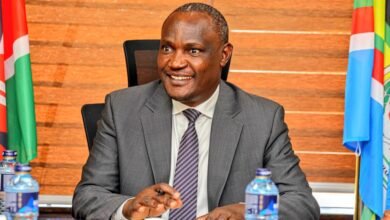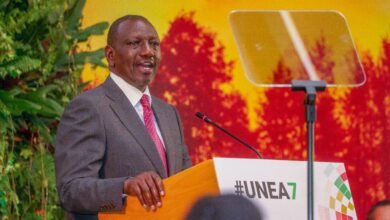
Namibia’s ruling South West African People’s Organisation (Swapo) has retained its hold on power despite recording its weakest electoral performance since independence in 1990.
Swapo secured 51 of the 96 elected parliamentary seats with 53.4% of the vote, a sharp decline from 65.5% in 2019, reflecting growing voter dissatisfaction over unemployment, corruption, and inequality.
The opposition Independent Patriots for Change (IPC) made significant gains, garnering 20.2% of the vote and 20 parliamentary seats. The president will appoint eight additional seats.
In the presidential race, Netumbo Nandi-Ndaitwah, 72, emerged victorious with 57.3% of the vote, becoming Namibia’s first female president.
Her main rival, IPC’s Panduleni Itula, secured 25.5% of the vote. Over 75% of the country’s 1.45 million registered voters participated in the elections, which the electoral commission described as free and fair despite opposition claims of irregularities.
A Historic Presidency and Challenges Ahead
Nandi-Ndaitwah, currently Namibia’s vice president and a veteran government official with over 25 years of experience, will join Tanzania’s Samia Suluhu Hassan as one of only two female heads of state in Africa.
Also Read: Namibia Inks MoU for Lofdal Thorium Offtake
Following her win, she pledged to uphold peace and stability, stating, “The Namibian nation has voted for peace and stability.”
Her administration faces critical challenges, including addressing a staggering 43% unemployment rate, ongoing droughts, and acute housing shortages.
At the same time, she will oversee Namibia’s transformation into a hydrocarbon producer by 2029, driven by significant offshore oil discoveries in the Orange Basin. Balancing resource management to benefit citizens while maintaining investor confidence will be a defining task of her presidency.
Opposition and Swapo’s Declining Popularity
Swapo’s diminished performance follows speculation that the party, which led Namibia’s liberation struggle against apartheid South Africa, might face the fate of other liberation-era parties in the region.
The IPC, led by charismatic dentist Panduleni Itula, has continued to erode Swapo’s dominance, reducing its presidential vote share from 87% in 2014 to 56% in 2019, and now to 57.3%.
While the IPC plans to challenge the election results in court, it has also urged citizens who felt disenfranchised to report irregularities to the police.
Nandi-Ndaitwah’s leadership will be closely watched as she tackles economic and social challenges while preserving the stability Swapo has championed since independence.





